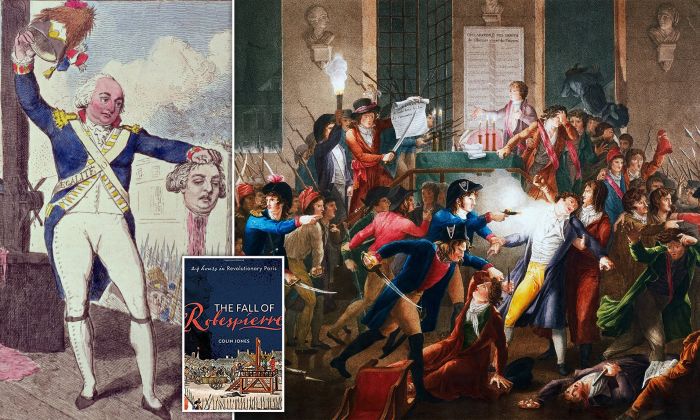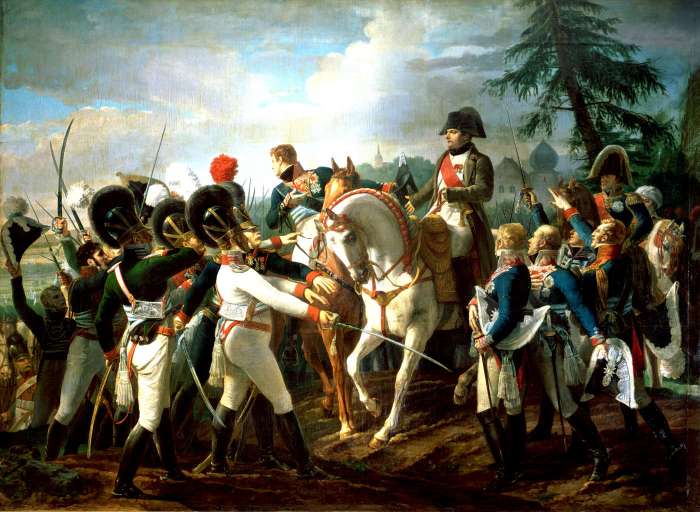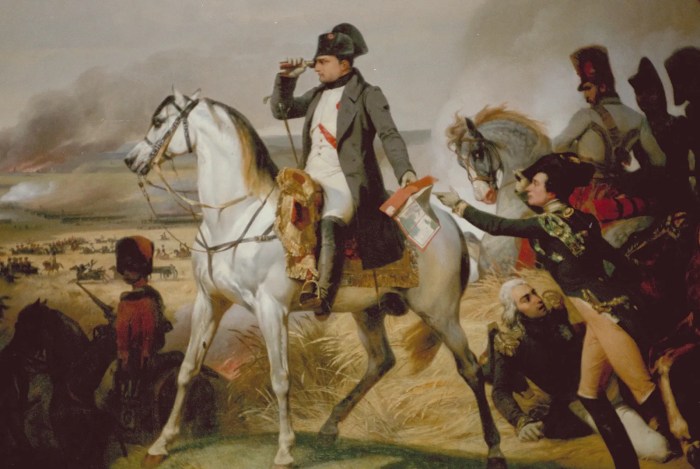Napoleon Bonaparte and the French Revolution Video Guide embarks on a captivating journey through the life and times of one of history’s most enigmatic figures. This comprehensive guide delves into the tumultuous events of the French Revolution and Napoleon’s pivotal role in shaping its course, offering a unique perspective on his rise to power, reign as Emperor, and eventual downfall.
From his humble beginnings to his military triumphs and political machinations, Napoleon’s story is a tapestry woven with ambition, brilliance, and controversy. This video guide unravels the complexities of his character, analyzes his strategies and tactics, and examines the lasting impact of his legacy on France and the world.
Introduction to Napoleon Bonaparte and the French Revolution: Napoleon Bonaparte And The French Revolution Video Guide

Napoleon Bonaparte, a towering figure in French history, played a pivotal role in the French Revolution and the subsequent Napoleonic Wars. The French Revolution, a tumultuous period marked by political upheaval and social change, had a profound impact on the nation and its people.
Napoleon Bonaparte’s Rise to Power, Napoleon bonaparte and the french revolution video guide
Napoleon Bonaparte, born in 1769, joined the French military at a young age and quickly rose through the ranks. His military genius was evident in his successful campaigns in Italy and Egypt, which solidified his reputation as a brilliant commander.
- Early military career and rise through the ranks
- Key battles and campaigns in Italy and Egypt
- Military strategies and tactics
Napoleon Bonaparte’s Reign as Emperor
In 1804, Napoleon Bonaparte was crowned Emperor of France. His reign was marked by significant reforms and policies, including the establishment of the Napoleonic Code, which modernized French law and had a lasting impact on legal systems worldwide.
- Coronation as Emperor of France
- Major reforms and policies implemented during his reign
- Impact of Napoleon Bonaparte’s rule on France and Europe
Napoleon Bonaparte’s Downfall
Despite his military prowess and political reforms, Napoleon Bonaparte’s reign eventually came to an end. A series of defeats, including the disastrous invasion of Russia, weakened his position, and he was ultimately defeated by a coalition of European powers.
- Factors leading to Napoleon Bonaparte’s downfall
- Key battles and campaigns resulting in his defeat
- Consequences of Napoleon Bonaparte’s defeat for France and Europe
Napoleon Bonaparte’s Legacy
Napoleon Bonaparte’s legacy is complex and multifaceted. He is remembered as a brilliant military strategist, a visionary leader, and a controversial figure whose actions shaped the course of European history.
- Different perspectives on Napoleon Bonaparte’s legacy
- Impact of Napoleon Bonaparte’s actions on France and the world
- Comparison of Napoleon Bonaparte to other historical figures
Top FAQs
What is the significance of the French Revolution?
The French Revolution was a watershed moment in world history, overthrowing the monarchy and establishing a republic based on the principles of liberty, equality, and fraternity. It had a profound impact on political thought and social structures, inspiring revolutions and reforms across Europe and beyond.
How did Napoleon Bonaparte rise to power?
Napoleon Bonaparte rose through the ranks of the French military during the French Revolution, distinguishing himself through his brilliance and ambition. He led successful campaigns in Italy and Egypt, gaining popularity and support. In 1799, he seized power in a coup d’état and established himself as First Consul of France.
What were Napoleon Bonaparte’s major accomplishments as Emperor?
As Emperor, Napoleon Bonaparte implemented numerous reforms and policies that transformed France. He established the Napoleonic Code, a comprehensive legal system that remains influential today. He also reorganized the education system, promoted infrastructure development, and expanded the French Empire.
What led to Napoleon Bonaparte’s downfall?
Napoleon Bonaparte’s downfall was due to a combination of factors, including his disastrous invasion of Russia in 1812, the formation of a coalition against him, and his own military overreach. He was defeated at the Battle of Waterloo in 1815 and exiled to the island of Saint Helena, where he died in 1821.
What is Napoleon Bonaparte’s legacy?
Napoleon Bonaparte’s legacy is complex and contested. He is admired for his military genius and his reforms, but also criticized for his authoritarian rule and his pursuit of war. He remains a towering figure in history, whose actions continue to be debated and analyzed.


